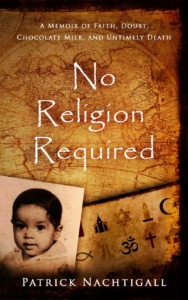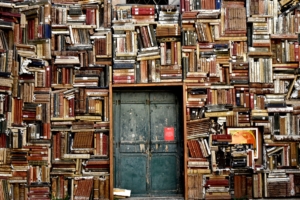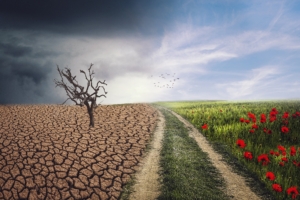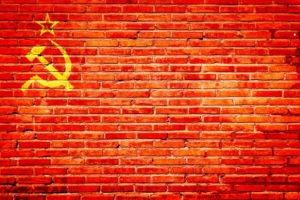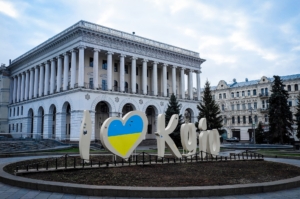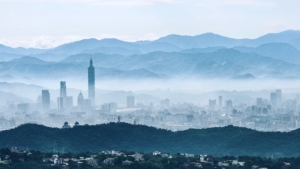I prefer reading books, but this year I dipped my toe into the world of audiobooks and have one of my own . Here are 3 very different audiobooks that I greatly enjoyed.
Michael Jordan: The Life by Roland Lazenby
There are a number of books about Michael Jordan, but this is the best biography. Aside from a painfully over-written preface that I barely made it through, the biographer settles into a groove and the book is consistently fascinating. For those of us that were hardcore Michael Jordan fans, we know A LOT about the man. There are usually not too many surprises. But the Michael Jordan documentary on Netflix “The Last Dance” was filled with video footage that had never been seen and interviews that had never happened. This book is the same way. For those that enjoyed the documentary, this book is a deeper-dive into Jordan’s competitiveness, the tensions between Jordan and his teammates, the many battles with General Manager Jerry Krause, and the tragedy of his father’s murder. But it goes deeper than that, and that’s where the book gets good.
Jordan’s uncanny ability to unnerve and insult opponents and identify everyone’s weak-spots is truly legendary. His startling intelligence about the game of basketball is explored, as well as his machiavellian genius when it came to business negotiations. Nike wanted to own him, but he figured out how to own Nike. Furthermore, it was completely new to me that there was extreme tension within the Jordan family over his success. His mother and father were basically torn apart by his success, relationships with siblings grew strained or non-existent, and his family that he cherished so deeply and which kept him sane amidst the truly global mega-stardom was basically destroyed by his fame.
The book takes us all the way through his Washington Wizards tenure and his desire to be an owner of an NBA franchise. The behind-the-scenes stories about the games, playoffs, rivals, and off-season shenanigans were all very interesting. Jordan is no saint; but his was a perfect storm of talent that goes beyond athletic skills. There was great intelligence, an unmatched competitive streak, and an almost diabolical ability to emotionally and mentally destroy people who tried to get in his way. Jordan makes Machiavelli look like a total wuss.
Secondhand Time: The Last of the Soviets by Svetlana Alexievich
Russian civilization and the Russian mind is extremely enigmatic and complicated to understand. A nation that is neither East nor West, a small nation that became geographically-enormous, and a civilization hiding as a country–Russia is complex. I’ve read quite a lot of books about Russia beginning in the early 1980’s, but this is the best one if you want to understand the Russian soul. It is a large collection of interviews with different ordinary Russians talking about their hopes, dreams, desires, and their overwhelming sense of futility and resignation. This is not a happy read (listen). These are people who are mourning what was lost when the Soviet Union collapsed. From the perspective of the West, we have a hard time seeing why anyone in the East would be nostalgic about the Communist era. This book will make you have compassion and understanding.
Written by a Ukranian journalist with extensive experience living and reporting in Russia, the stories collected here tell of how hard life became after the Soviet Union collapsed. Poverty, dysfunction, crime, immigration, extremely-low birthrates, corruption–for most, attaining middle class or wealthy status has been impossible. Time and time again, what you hear is that at least in the Soviet Union, they had community and connection. There was some structure and order to society. People sang the same songs and had genuine pride in their country. All of that is gone in the Darwinian, anarchical Russia of today. It’s every oligarch for himself, and the rest be damned.
We hear from young people (all voiced by different voice actors), poor widows, war veterans, Islamic immigrants from former Soviet Republics, the stories of lovers, and tragedies galore. Like I said, this is not an uplifting or easy listen. But for anyone seeking to understand why there is a Putin, why Russia has often made such terrible choices, why they have often shot themselves in the foot, and why they are a nation in severe decline—this book will reveal all.
Beastie Boys Book by By Ad Rock, Adam Horovitz, and Mike D
If you think the Beastie Boys were just dumb, white rappers (a la Vanilla Ice), or think that rap and hip hop are stupid, this book should change your mind. Yes, it’s a history of the most successful white rap group of all time told by the group, their friends and peers themselves; but more than that, it’s a tribute to the creative genius of the late Adam Yauch (MCA) and a deep dive into the entire culture of hip-hop, not just rap. It’s actually a brilliant examination of many different kinds of music and their significance socially. This is because the Beastie Boys, funny as they were, were playing dumb the whole time. Gen-Xers instinctively get the irony of that. They in fact, were 3 brilliant Jewish kids from New York City who had very sophisticated, eclectic tastes, and enormous musical knowledge. To create sounds, new beats, rhythms and rhymes, they mined every kind of music imaginable, including classical music. Even for someone like me, (a music-phile with tastes that range from New Kids on the Block (yikes, did I just admit that?) to Wagner’s Götterdämmerung, from the Nigerian music of Feta Kuli to the Appalachian music of Loretta Lynn, to the Japanese pop of Utada Hikaru and the urban rhymes of Notorious B.I.G.) the Beasties take it to another level. I found myself looking up artists of all genres I had never heard of. So creative was their sampling, that they even made an album of entirely made up, eclectic, fake samples making people scramble on impossible quests to find the real song behind the beat.
That’s another thing. The book is very funny (and the book version is significantly more beautiful). On the audio-version, Beastie Mike Diamond is joined in narrating the book by many well-known actors, musicians, actual people from their lives, and they include Will Ferrell, Ben Stiller, Steve Buscemi, John Stewart, Amy Pohler, Elvis Costello, Chuck D, Jarvis Cocker, Bette Middler and many others. Yes, it is for fans (or 80’s kids who have a good ironic sense of humor and want to remember what it was like to grow up in the 70’s and 80’s), but it’s also for anyone that wants to learn about the history of Hip Hop which goes beyond rap, to dancing, graffiti, deejaying, emceeing, and beat-boxing–all things that are more complicated and have more rich, nuanced histories than one might imagine.
FINALLY, My latest book, a personal (and humorous) memoir about my life and the sometimes toxic, sometimes beautiful role religion plays in the world is also available on audio and should be considerably funnier than the Russia book, although you might find me an equally tragic, hopeless figure. You can order the audio version of No Religion Required: A Memoir of Faith, Doubt, Chocolate Milk, and Untimely Death (narrated by Darth Vader).
